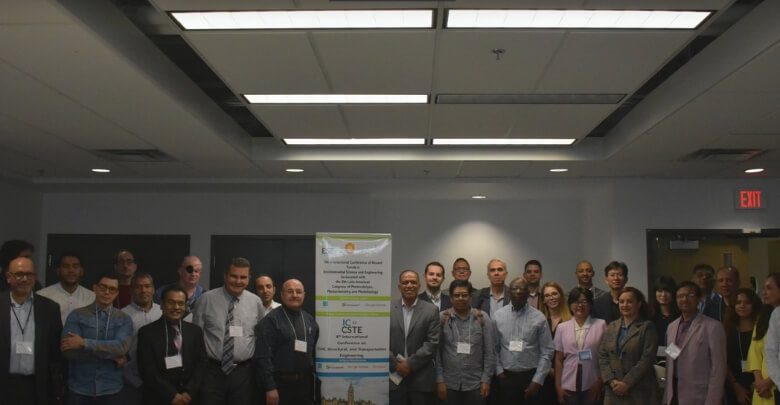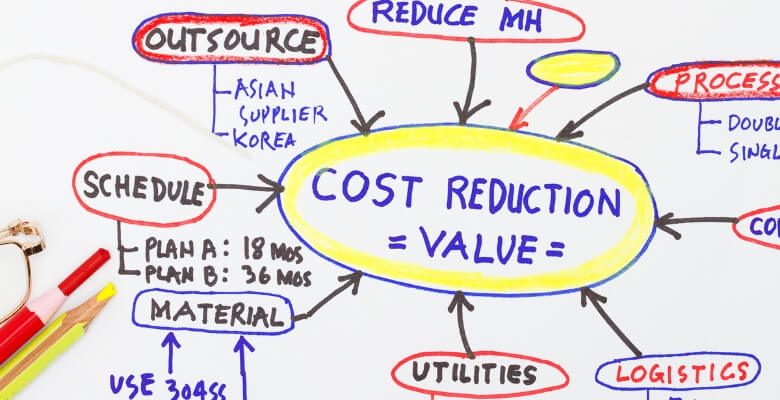The experience of attending a transportation and traffic engineering conference can transform a professional’s career. There is no doubt that these conferences offer valuable insight into the latest innovations, research findings, and networking opportunities that can significantly influence career paths and industry standards. Interested in attending but wondering, “How much does it cost to attend the transportation and traffic engineering conference?”
Well, it depends on the situation. On average, expenses range from $600 to $1500. Costs vary based on registration type, early bird discounts, and membership status in professional organizations.
Continue reading our in-depth article for a detailed breakdown of where these costs are spent and how they can be reduced.
Overview of Transportation and Traffic Engineering Conference
The transportation and traffic engineering conference attracts experts to discuss current issues and advancements in the field. It’s a mix of engineers, researchers, and practitioners who share knowledge and experiences. This conference offers a platform for networking and collaboration among professionals dedicated to improving transportation systems. Attendees can engage in discussions that cover various topics, including traffic management and infrastructure development.
Sessions at the conference feature presentations on innovative technologies and best practices. Participants have the opportunity to learn from industry leaders and explore new ideas. During workshops and panel discussions, participants are able to engage in interactive learning, fostering a collaborative atmosphere. These experiences help attendees gain valuable insights to implement in their projects.
The conference aims to inspire innovative solutions for transportation challenges faced by cities and communities. By sharing experiences and strategies, professionals can address issues such as overcrowding and safety. This conference focuses on the importance of sustainable practices in transportation engineering. The conference seeks to promote a safer and more efficient transportation network for everyone.
Categories of Transportation and Traffic Engineering Conference
Conferences on transportation and traffic engineering cover a wide range of topics crucial to advancing this dynamic field. These gatherings help professionals stay updated with the latest trends and technologies. Here are some key categories discussed at these events:
- Infrastructure Design and Management: This category focuses on road network planning and development. Experts discuss sustainable practices and innovations in infrastructure management.
- Traffic Management Systems: Participants explore systems designed to boost traffic flow and safety on roads. The use of AI and machine learning in traffic management is often highlighted.
- Public Transportation Systems: Discussions here revolve around optimizing bus, train, and other public transport services. The goal is to improve efficiency and accessibility for all users.
- Safety and Regulations: Safety protocols and regulatory compliance are critical topics. Safety enhancement techniques and legislation impacts are frequently discussed at conferences.
- Environmental Impact: This focus area deals with reducing transportation’s ecological footprint. Strategies for cleaner, greener transport solutions are extensively explored.
- Smart Cities and Urban Mobility: Talks in this category examine how urban areas can adapt to increasing mobility demands. Integration of technology into urban planning is a major focus.
Who Participates in A Transportation and Traffic Engineering Conference?
Various participants in the field of transportation and traffic engineering meet at the transportation and traffic engineering conferences. During these events, participants will be able to share knowledge, network, and discover the latest technological advancements. Listed below are the attendees who participated in the conference:
Government Officials
Government representatives set policies affecting transportation and safety. They collaborate with experts to draft better regulations. Their participation ensures alignment with public sector goals. They often seek innovative solutions for urban planning.
Academic Researchers
Researchers present studies and findings at these conferences. They explore new theories in transportation and traffic systems. Their work often leads to significant advancements in the field. Engaging with peers, they exchange valuable insights.
Industry Experts
Professionals from construction, engineering, and planning attend. They apply conference learning to real-world projects. These participants of transportation and traffic engineering conferences discuss challenges and solutions in infrastructure development. Networking is a key benefit for them.
Technology Developers
Tech companies showcase new software and tools. Their products can revolutionize traffic management and safety. They look for feedback to improve their offerings. Collaboration with researchers and engineers is common.
Urban Planners
Planners focus on sustainable and efficient city development. They integrate new technologies into public infrastructure. Their goal is to raise quality of life through better mobility. Conferences provide them with creative solutions.
Each participant at these conferences plays a vital role in shaping the future of transportation and traffic engineering. They contribute to a more connected and efficient world through their diverse perspectives and expertise.
How to Find Upcoming Transportation and Traffic Engineering Conference?
Finding upcoming transportation and traffic engineering conferences is essential for staying updated in the field. With millions of conferences happening worldwide, it’s crucial to know the best methods to identify relevant conferences. Below are some effective steps to guide you in this process:
Step 1: Utilize Conference Directories
Browse through online directories dedicated to listing conferences, such as Global Conference Alliance Inc. These platforms allow you to filter events by date, location, and topic, providing a detailed list of upcoming conferences. It’s a reliable way to identify suitable conferences in your field of interest.
Step 2: Explore Professional Associations
Visit transportation and engineering associations’ websites. They often list upcoming events and conferences, including those organized by or affiliated with them. Membership also provides exclusive access to industry events and networking opportunities.
Step 3: Set Up Alerts on Event Platforms
Use event platforms to set alerts for transportation and traffic engineering topics. These platforms send notifications about new and relevant conferences based on your preferences. This ensures you don’t miss any important events, and you can even discover local meetups or workshops related to your field.
Step 4: Follow Industry Leaders on Social Media
Connect with industry professionals on LinkedIn and Twitter who are active in transportation and traffic engineering. They often share information about conferences they attend or recommend, giving you direct access to valuable insights. Social media is a useful tool for discovering lesser-known events that might not be listed on major directories.
Step 5: Check Academic Institutions
Review the event calendars of universities with strong transportation engineering programs, such as MIT or Stanford. Academic institutions frequently host or sponsor conferences, seminars, and workshops that attract leading researchers and professionals. Attending these events offers access to cutting-edge research and emerging trends in the industry.
Step 6: Consult with Colleagues and Networks
Ask peers and colleagues in your professional network for recommendations on upcoming conferences. They might know about valuable conferences not widely advertised, especially those focused on niche areas. Word-of-mouth is an effective way to find hidden gems and gain insights from trusted sources within your industry.
By following these steps to find upcoming transportation and traffic engineering conferences, you can stay informed and connected within the industry. Each method offers unique advantages, helping you discover events that suit your needs.
How Much Does It Cost to Attend the Transportation and Traffic Engineering Conference?
The transportation and traffic engineering conference can be both inspiring and costly, ranging from $600 to $1500. The variation in cost is caused by a variety of factors, all of which contribute to the final price attendees pay. Being aware of these can help potential participants budget effectively for the conference. Here are some factors that influence the cost:
Registration Type
Different registration options are available, each priced differently. Early registration typically offers a discount, rewarding those who plan ahead. Standard registration follows, costing more as the conference date approaches.
Late registrants face the highest fees, a premium for last-minute decisions. This tiered pricing system encourages early commitment. You can save a lot of money if you understand the rate change schedule.
Early Bird Discounts
Early bird discounts incentivize early commitments to the conference. These offers significantly reduce costs for proactive attendees. Taking advantage of these discounts requires monitoring when they are available.
Missing out on these can mean paying substantially more. Therefore, subscribing to conference newsletters or alerts can be beneficial. This ensures you receive timely notifications about discount periods.
Membership Status
Members of professional organizations often enjoy reduced rates. This discount acknowledges their ongoing contribution to the field. Checking eligibility for these discounts can cut expenses.
If you’re not a member, consider joining before registering. The savings on conference fees can offset membership costs. This is especially useful for regular industry attendees.
Additional Workshops
Workshops and special sessions may not be included in the general registration fee. These sessions offer specialized knowledge but at an additional cost. Deciding which workshops to attend can affect your total expenditure.
While these provide significant value, they require careful selection based on your professional needs. Check the benefits against the costs before signing up. Balancing your educational goals and budget is key.
Travel and Accommodation
Travel costs vary widely depending on your starting location. Booking early often secures lower fares and better deals. Similarly, accommodation options range in price, affecting the overall cost.
Staying at a conference hotel offers convenience but often at a premium. Exploring nearby alternatives could provide savings. Planning travel and accommodation well in advance is crucial for managing expenses.
Being aware of cost to attend transportation and traffic engineering conference helps you plan your budget wisely. By considering these factors, you can make informed decisions and potentially save on overall expenses.
What Makes a Conference on Transportation and Traffic Engineering Worth Attending?
The transportation and traffic engineering conferences are a unique opportunity to network, learn, and be exposed to new technologies. These events are essential for professionals seeking to raise their skills and stay ahead. So finding its upcoming conferences and participating in them has a wide range of benefits. The following are some reasons why you should attend:
Latest Industry Insights
At the conference, experts talk about the latest research and trends in transportation and traffic engineering. This helps attendees stay updated in their careers. Learning about new technologies becomes simpler, which is important for adjusting to changes in the industry.
Networking Opportunities
Conferences attract a wide range of professionals from various sectors. Meeting new people can lead to collaborative opportunities. Exchanging ideas with peers is valuable. These connections often result in lasting professional relationships.
Professional Development
Workshops and seminars provide practical skills and knowledge. Certifications and training sessions are available for career advancement. Attending these events can lead to professional recognition and growth. They’re designed to boost both knowledge and skills.
Access to New Technologies
Exhibitors showcase the latest tools and systems. Attendees can see and test new products firsthand. This direct exposure is crucial for tech adoption. It helps professionals figure out how to integrate these tools into their work.
Policy and Regulatory Updates
The site provides updates on laws and regulations. Knowing these is essential for compliance and planning. Discussions often cover international, national, and local perspectives. Staying informed about policy changes prevents future hurdles.
Tips for Cost Reduction While Attending a Transportation and Traffic Engineering Conference
Investing in your professional growth by attending a transportation and traffic engineering conference is one of the best investments you can make. However, expenses can add up, so you should find ways to reduce them. These tips will help you save money while still enjoying the conference.
- Early Registration: Take advantage of early bird discounts by registering as soon as registration opens. These discounts can significantly lower your attendance costs and are typically available months in advance.
- Membership Advantages: You may be able to obtain a discount on conference fees if you are a member of a professional organization. Membership often comes with perks like reduced rates, which make attending cheaper.
- Volunteer Opportunities: Consider volunteering at the conference. Volunteers often enjoy free or reduced admission in exchange for their help during the event.
- Shared Accommodations: Share a hotel room with colleagues or other attendees. Splitting the cost of a room can halve your accommodation expenses and offer additional networking.
- Public Transportation: Use public transport instead of renting a car or taxis. Many conference cities have reliable and affordable transit systems that can take you from your hotel to the conference venue.
- Bring Your Own Meals: Reduce meal expenses by bringing your own snacks and lunch. Food at conferences can be pricey, and having your own supplies saves money.
By adopting these strategies, you can make attending a transportation and traffic engineering conference more affordable. These tips not only cut down on expenses but can also increase your overall experience by creating new connections and opportunities.
Frequently Asked Questions
The following is a list of some of the frequently asked questions on how much does it cost to attend a conference on transportation and traffic engineering and the relevant answers for an understanding of how much it costs:
Do Conference Organizers Offer Any Discounts on Registration Fees?
Yes, discounts are often available for early registration, students, members of partnering organizations, and group registrations.
Are There Scholarships or Financial Aid Available to Help Cover the Costs?
Some conferences offer scholarships or financial aid programs for students or individuals from developing countries. Applicants usually need to meet specific criteria and submit an application.
What Is Included in The Registration Fee?
The registration fee typically covers access to all conference sessions, workshops, exhibition areas, conference materials, and some meals or refreshments depending on the package.
Can I Get a Refund if I Need to Cancel My Registration?
Refund policies vary by conference. Some conferences offer full or partial refunds for cancellations made by a certain deadline, while others may have a no-refund policy.
Is There a Deadline for Registration to Qualify for The Early Bird Rate?
Yes, there is usually a deadline specified by the conference organizers. Registering before this deadline can result in significant savings on the registration fee.
Are There Any Sponsorship Opportunities Available for Companies or Organizations?
Yes, most conferences offer sponsorship packages that include various benefits such as branding, exhibition space, and complimentary registrations.
Bottom Line
Planning a proper budget for the transportation and traffic engineering conference begins with knowing the costs. Costs vary widely, generally ranging from $600 to $1500, influenced by several key factors.
As we discover “How much does the transportation and traffic engineering conference cost?” we can take advantage of early registration discounts, membership benefits, and other cost-saving strategies. These efforts make it possible to manage and reduce overall expenses effectively.
Adopting cost-effective measures like sharing accommodations and using public transportation can further ease the financial burden. With these practical tips, conference attendees can make their conference experience more affordable and enriching.









This topic is something I’ve been curious about, great timing!